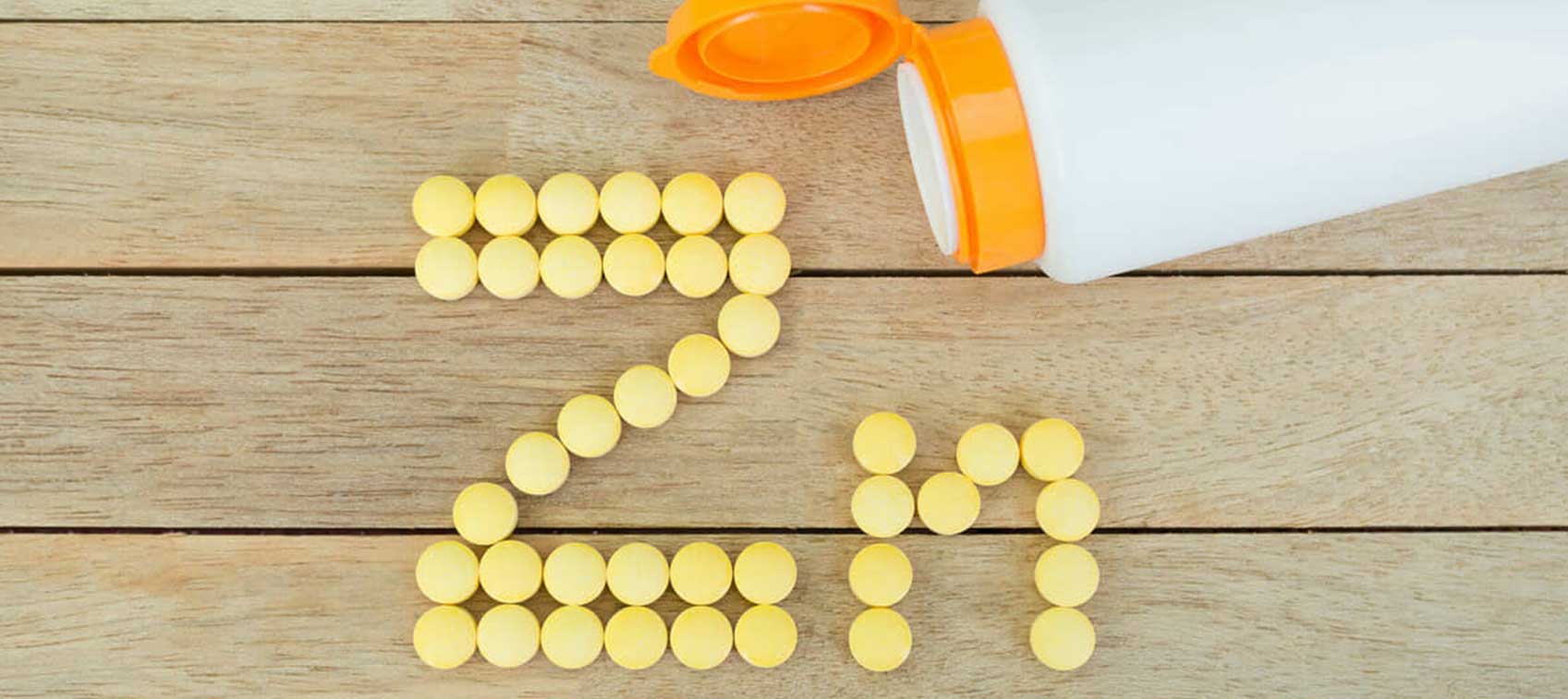
Although it’s not as widely discussed as other vitamins and minerals, zinc is essential for health and well-being. Adequate levels of this trace mineral are necessary for optimal immune function, vision, prostate health, and skin health. Other benefits of zinc include its roles in wound healing, learning and memory, and proper functioning of many hormones, including thymus hormones, insulin, growth hormone, and sex hormones.
Unfortunately, marginal zinc deficiencies are quite common, and are reflected by an increased susceptibility to infection, poor wound healing, decreased sense of taste or smell, and skin problems such as acne, eczema, and psoriasis. Pregnancy and lactation also increase the need for zinc, as do certain medications, alcohol use, vegetarian diets, and a high intake of calcium and fiber.
Let’s take a closer look at some of the varied health benefits of zinc.
Zinc and Immune Health
Vitamin C is usually the first supplement people reach for when they want to boost their immune health. However, you may want to think zinc. In a double-blind, placebo-controlled study, people ages 55–87 who took 45 mg of zinc daily for a year had significantly fewer infections and markedly lower levels of oxidative stress than participants who took a placebo.
Zinc is also protective against cancer. Women who supplemented with zinc for a decade or more had half the risk of developing breast cancer as women who did not take supplements. This may be due in part to zinc’s unique ability to ameliorate the carcinogenic effects of cadmium, a heavy metal found in cigarette smoke, shellfish, and grains.
Zinc for the Common Cold
Speaking of zinc and immune health, some studies have found that this nutrient can reduce a cold’s length and severity, while others have declared it to be ineffective. Fortunately, two recent meta-analyses help confirm that treating the common cold is among the many health benefits of zinc.
Finnish researchers analyzed all of the placebo-controlled trials examining the effects of zinc supplements on colds and found that in the trials using daily doses of 75 mg or more, the duration of symptoms was reduced by an average of 42 percent.
Likewise, a Cochrane review of 15 trials found that cold duration and severity were reduced if zinc was taken within the first 24 hours of symptom onset. What’s more, the same review found that daily, 10–15 mg doses of zinc taken for five months or longer actually helped prevent colds in children.
At the first sign of a cold, start taking 75 mg of zinc daily. You can get this amount through a combination of a daily multivitamin and other targeted supplements that contain zinc. And if you’re susceptible to colds, take extra zinc (adults 30 mg, children 10–15 mg daily) before the season begins.
Zinc Benefits for Skin
One of the lesser known health benefits of zinc is its ability to heal wounds. Zinc interacts with platelets in blood clotting and aids protein synthesis and cell growth. Plus, it tends to accumulate around wounds, where cell division takes place more vigorously, particularly during the initial week of wound healing. Studies have shown that high doses of zinc speed healing following trauma, including surgery, burns, and wounds.
Zinc and Sense of Smell
Anosmia, the inability to detect odors, can be caused by a deficiency of zinc. Infections are known to deplete the body’s stores of this mineral, which may explain why our sense of smell is sometimes impaired after a cold or flu. Note that zinc nasal sprays are not recommended; though they have been shown to reduce cold severity, the spray formulations have also been linked with anosmia.
Zinc for Eye Health
According to a ground-breaking study by the National Eye Institute, daily supplements containing 80 mg of zinc plus targeted antioxidants reduced the risk of macular degeneration (the leading cause of blindness in older people) by 25 percent and the risk of vision loss from advanced macular degeneration by 19 percent.
Granted, this is a fairly high level of zinc. The good news, though, is that toxicity is noted only with prolonged intake of 150 mg or more per day. It is important to balance zinc with supplemental copper, because it competes with copper for absorption and may cause deficiencies of this mineral.
How to Reap the Health Benefits of Zinc
The best food source of zinc, by far, is oysters. Other good sources are pumpkin seeds, ginger root, nuts, and whole grains. For general health, I suggest that everyone take a minimum of 30 mg of zinc daily, balanced with 2 mg of copper. Even at high doses, zinc is safe, as illustrated by the National Eye Institute study involving daily doses of 80 mg.


